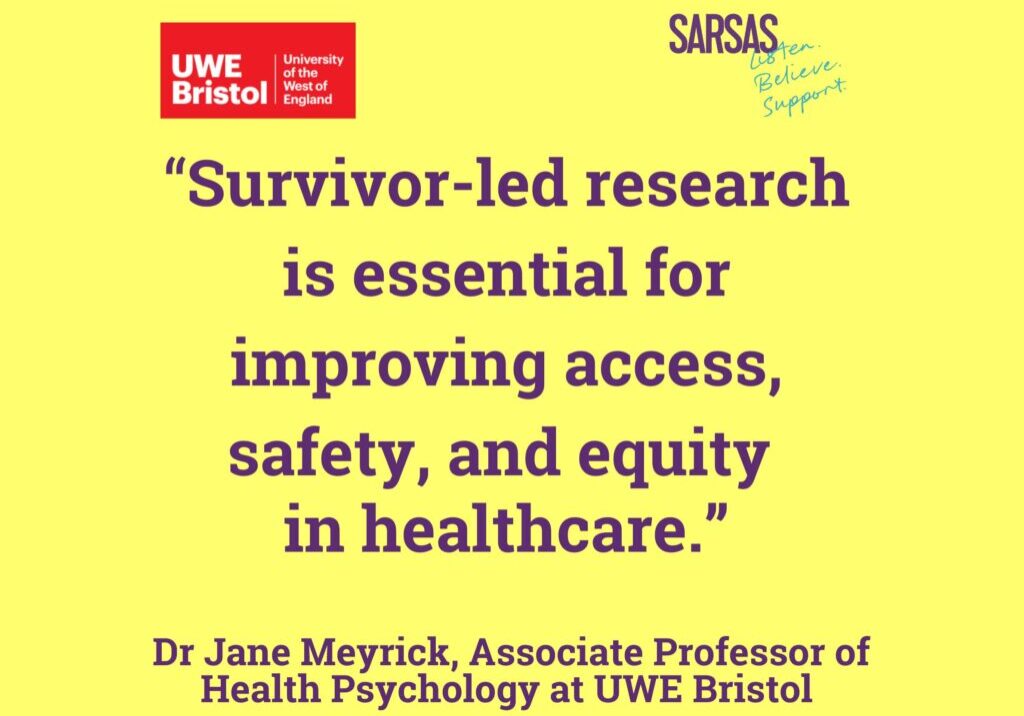
Trauma and Sexual Intimacy
One of our counsellors writes about the impact of trauma on sexual intimacy.
In my last blog, I looked at some of the impacts of trauma and how that can affect relationships. In this blog, I am going to talk about how sexual violence trauma and its impacts can affect sexual intimacy.
There are many myths and social messages that can add to someone internalizing feelings of blame and shame after an experience of sexual violence. These include (but are not limited to):
- glamorized depictions of abuse in film, tv and media where the victim is portrayed as conventionally attractive and valiantly fighting off a stranger
- the ‘boys will be boys’ message which make it the victim-survivor’s responsibility to keep themselves safe (removing the blame from the perpetrator)
- the idea that if someone doesn’t want sex then they shouldn’t agree to that lift home, they shouldn’t kiss or dance with someone or they shouldn’t drink (all of which present a complete lack of understanding of consent).
These common (and incorrect) myths can leave someone feeling confused, experiencing self-blame and being angry with themselves rather than the perpetrator.
Within sexual partnerships, the impact of one partner experiencing sexual abuse can be devasting and is not often talked about. There are many ways that sexual violence can impact a person’s sexuality and health, from sexually transmitted infections (STIs) and unwanted pregnancies to profound emotional and psychological effects.
Sometimes, sexual trauma can make a person more sexually active in less safe ways as they try to regain a sense of control and ownership over their bodies. The experience of violation can also make it difficult to say ‘no’ – it is less scary to say ‘yes’ to bad sex than to have choice and autonomy taken away from you and have it affirmed that your choice is irrelevant. It becomes harder to put down safe and healthy boundaries.
Clients may fear that if they are honest about their sexual experiences their partner won’t understand and will shame them. An experience of sexual violence can also make someone fearful or avoidant around sex while feeling like they have to endure it to maintain the relationship with their partner.
When I first started working with sexual trauma, I found it easier to listen to the details of the trauma the person had experienced and the way they were hurt sexually than talking with clients about regaining sexual pleasure and intimacy with a partner, as discussing pleasure felt a bit taboo. I have come to love this part of my work; however, I think it is still one of the areas that clients feel most awkward discussing in therapy. Talking about sexual pleasure, how to regain it, and acknowledging that sexual abuse includes the same acts and impacts as consensual sex is still taboo in our binary society.
Often clients begin this conversation because they want to make their partner happy sexually and are afraid of losing them. They may struggle to talk to their partner openly about their feelings and sexual triggers for various reasons:
- they don’t want their partner to see how the abuse has cast a shadow over their intimacy.
- they don’t want to explain to their partner that certain acts or phrases remind them of how another person hurt them – it feels easier to avoid sex altogether or endure it until it’s over.
- previous negative reactions from a partner after telling them about abuse.
Even without abuse being part of the landscape, communicating with partners about sex isn’t easy. Society has ingrained myths around sex:
- that sex should be easy and take little effort
- that a person is either sexually free or repressed (but if you’re too free, you’re a slut).
- that a partner should be entuned with your desires so it shouldn’t take much communication
- that casual sex should be fun and simple because it’s not emotional
- that consent takes either a ‘yes’ or a ‘no’ rather than a constant checking in around whether your partner is enthusiastically engaged and enjoying what is occurring.
When I begin working with clients around regaining their sexual pleasure, I usually check that they are doing this because they want it for themselves as well as their partner. I often start with looking at how they view sex and working through the body shame that the abuse has left them with. One of the harder truths we look at is that their body did not want to be violated any more than their mind and heart did, but that their body deeply remembers what was done to it and cannot always differentiate between their partners wanted touch and the touch of another unwanted violator. The sexual landscape has been changed by what happened to you and even though you may mentally know that you are with a person you love and want, your body may still recoil terrified and be unable to tell the difference.
I make sure that clients understand that they will not improve their body’s ability to connect sexually by forcing it to endure what is happening. Bullying your body as a form of aversion therapy will not help it feel safety and pleasure again. Instead, when a client is in a healthy and loving relationship, I tell them to start talking to their partner about how they are feeling and to take sex off the table for a while. Then we begin to work on reconnecting them to their felt sense. I ask them to notice when their body is saying ‘yes’; “how does your body show you it likes eating certain foods or enjoys and is excited by certain activities?”
Next, we move on to what it feels like when their body is saying ‘No’ and listening to and respecting that ‘no’.
Once the client is connected to their felt sense, I ask them to start reconnecting with their partner physically but slowly. Maybe it starts with holding hands while walking, cuddling on a sofa or allowing their partner to give them a massage. During this time of building physical trust and communication, I ask clients to set clear boundaries around each physical activity. For example, “we are going to share a bath together and be physically naked to get comfortable but that is it” or “we are going to experiment with pleasurable touch, and I am going to tell you what touch I like or don’t like but no penetration”.
This intimate physical interaction and communication should eventually lead to talking about and experimenting with their sexual pleasure and fantasies as the client’s body learns that while some things may never feel ok for them, there are many sexual things inside a loving relationship that are pleasurable.
One of the things I love about the work of reconnecting clients with their bodies and pleasure is that it doesn’t just give them back a healthy sex life, they also seem to be much more connected to their joy and all the other things that bring them pleasure in life. Their creativity and connection to their partner improves as they are able to embrace the vulnerability and intimacy of this communication with themselves and their partner.
The work of regaining intimacy and pleasure takes patience and grieving and letting go of misplaced shame over what it took to survive… but it can be one of the most joyous areas of post-traumatic growth.





